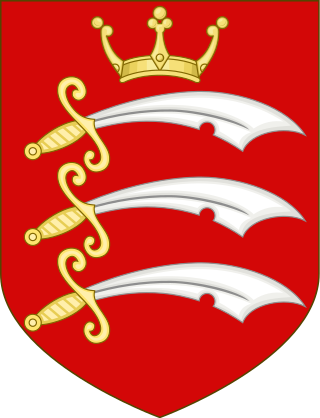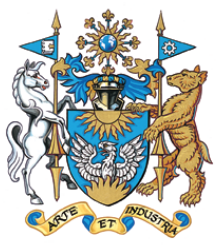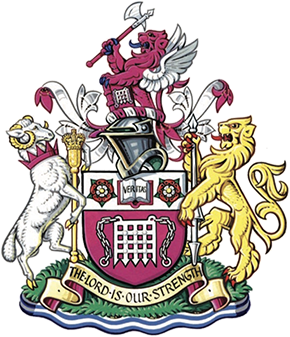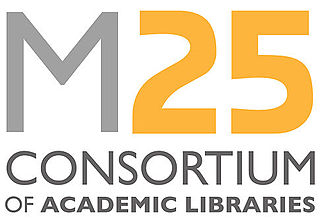Related Research Articles

Manchester Metropolitan University (MMU) is located in the centre of Manchester, England. The university has over 40,000 students and over 4,000 members of staff. It is home to four faculties and is one of the largest universities in the UK, measured by the size of its student population in 2020/21.
The University of Brighton is a public university based on four campuses in Brighton and Eastbourne on the south coast of England. Its roots can be traced back to 1858 when the Brighton School of Art was opened in the Royal Pavilion. It achieved university status in 1992.

Anglia Ruskin University (ARU) is a public university in East Anglia, United Kingdom. Its origins are in the Cambridge School of Art (CSA), founded by William John Beamont, a Fellow of Trinity College at University of Cambridge, in 1858. It became a university in 1992, and was renamed after John Ruskin, the Oxford University professor and author, in 2005. Ruskin gave the inauguration speech of the Cambridge School of Art in 1858. It is one of the "post-1992 universities". The motto of the university is in Latin Excellentia per societatem, in English Excellence through partnership.

London Metropolitan University, commonly known as London Met, is a public research university in London, England. The University of North London and London Guildhall University merged in 2002 to create the university. The University's roots go back to 1848.

Middlesex University London is a public research university based in Hendon, northwest London, England. The university also has campuses in Dubai and Mauritius. The name of the university is derived from its location within the historic county boundaries of Middlesex.

Birmingham City University is a university in Birmingham, England. Initially established as the Birmingham College of Art with roots dating back to 1843, it was designated as a polytechnic in 1971 and gained university status in 1992.

The University of Hertfordshire (UH) is a public university in Hertfordshire, United Kingdom. The university is based largely in Hatfield, Hertfordshire. Its antecedent institution, Hatfield Technical College, was founded in 1948 and was identified as one of 25 Colleges of Technology in the United Kingdom in 1959. In 1992, Hatfield Polytechnic was granted university status by the British government and subsequently renamed University of Hertfordshire. It is one of the post-1992 universities.

The Russell Group is a self-selected association of twenty-four public research universities in the United Kingdom. The group is headquartered in Cambridge and was established in 1994 to represent its members' interests, principally to government and Parliament. It was incorporated in 2007. Its members are often perceived as being the UK's best universities, but this has been disputed.

The University of Portsmouth (UoP) is a public university in Portsmouth, England. Comprising five faculties, the university offers a wide range of academic disciplines. With around 28,280 students enrolled in undergraduate and postgraduate programs, the university in 2022 was the 25th-largest higher education institution by student enrolments in the United Kingdom. The university employed approximately 3,500 staff in 2020.

Universities UK (UUK) is an advocacy organisation for universities in the United Kingdom. It began life in the early 20th century through informal meetings of vice-chancellors of a number of universities and principals of university colleges and was previously known as the Committee of Vice-Chancellors and Principals of the Universities of the United Kingdom (CVCP). As of August 2023, UUK is led by President Sally Mapstone – Vice-Chancellor and Principal of the University of St Andrews – and Chief Executive Vivienne Stern. UUK is registered charity with an annual income of £13.7 million, which is largely raised from its member institutions.

Coventry University is a public research university in Coventry, England. The origins of Coventry University can be linked to the founding of the Coventry School of Design in 1843. It was known as Lanchester Polytechnic from 1970 until 1987, and then as Coventry Polytechnic until the Further and Higher Education Act 1992 afforded its university status that year and the name was changed to Coventry University.

Leeds Beckett University (LBU), formerly known as Leeds Metropolitan University (LMU) and before that as Leeds Polytechnic, is a public university in Leeds, West Yorkshire, England. It has campuses in the city centre and Headingley. The university's origins can be traced to 1824, with the foundation of the Leeds Mechanics Institute. Leeds Polytechnic was formed in 1970, and was part of the Leeds Local Education Authority until it became an independent Higher Education Corporation on 1 April 1989. In 1992, the institution gained university status. The current name was adopted in September 2014.

Teesside University is a public university with its main campus in Middlesbrough, North Yorkshire in North East England. It was officially opened as Constantine Technical College in 1930, before becoming a polytechnic in 1969, and finally granted university status in 1992 by the Privy Council.

Birmingham Newman University is a public university based in the suburb of Bartley Green in Birmingham, England. The university was founded in 1968 as Newman College of Higher Education. From 2008 to 2013, it was known as Newman University College, gaining full university status in 2013. From 2013 to 2023, it was known as Newman University and Birmingham Newman University in 2023.

Jisc is a United Kingdom not-for-profit organisation that provides network and IT services and digital resources in support of further and higher education and research, as well as the public sector. Its head office is based in Bristol with offices in London, Manchester, and Oxford. Its current CEO is Heidi Fraser-Krauss, who joined in September 2021 from the University of York.

The Scottish Funding Council, formally the Scottish Further and Higher Education Funding Council, is the non-departmental public body charged with funding Scotland's further and higher education institutions, including its 26 colleges and 19 universities.

The University of Westminster is a public university based in London, United Kingdom. Founded in 1838 as the Royal Polytechnic Institution, it was the first polytechnic to open in London. The Polytechnic formally received a Royal charter in August 1839, and became the University of Westminster in 1992.

The M25 Consortium of Academic Libraries is a collaborative organisation that works to improve library and information services within the M25 region, and more widely across the East and Southeast of England.

The University of the Arts London is a public collegiate university in London, England, United Kingdom. It specialises in arts, design, fashion, and the performing arts. The university is a federation of six arts colleges: Camberwell College of Arts, Central Saint Martins, Chelsea College of Arts, the London College of Communication, the London College of Fashion and the Wimbledon College of Arts.
Learning development describes work with students and staff to develop academic practices, with a main focus on students developing academic practices in higher education, which assess the progress of knowledge acquired by the means of structural approaches. Learning developers are academic professionals who: teach, advise and facilitate students to develop their academic practices; create academic development learning resources; and reflect on their own academic practices through a community of practice.
References
- ↑ "History of SCONUL". SCONUL. Archived from the original on 1 November 2012. Retrieved 27 November 2014.
- ↑ "Access to external libraries 3: SCONUL access". Leeds University Library. Retrieved 3 November 2009.
- ↑ Creaser, Claire. "UK Higher education library statistics (abstract)". Library Statistics for the Twenty-First Century World. pp. 261–272. Retrieved 3 November 2009.
- ↑ "Content Strategy Group | SCONUL". www.sconul.ac.uk. Retrieved 31 January 2023.
- ↑ "Organisational Development Strategy Group | SCONUL". www.sconul.ac.uk. Retrieved 31 January 2023.
- ↑ "Technology and Markets Strategy Group | SCONUL". www.sconul.ac.uk. Retrieved 31 January 2023.
- ↑ "Trends and Futures Strategy Group | SCONUL". www.sconul.ac.uk. Retrieved 31 January 2023.
- ↑ "SCONUL Annual review" (PDF). 2007. p. 2. Retrieved 3 November 2009.
- ↑ "SCONUL Annual review" (PDF). 2007. p. ii. Retrieved 3 November 2009.
- ↑ "SCONUL Announces Appointment of Ann Rossiter as new Executive Director". SCONUL. Retrieved 19 October 2010.